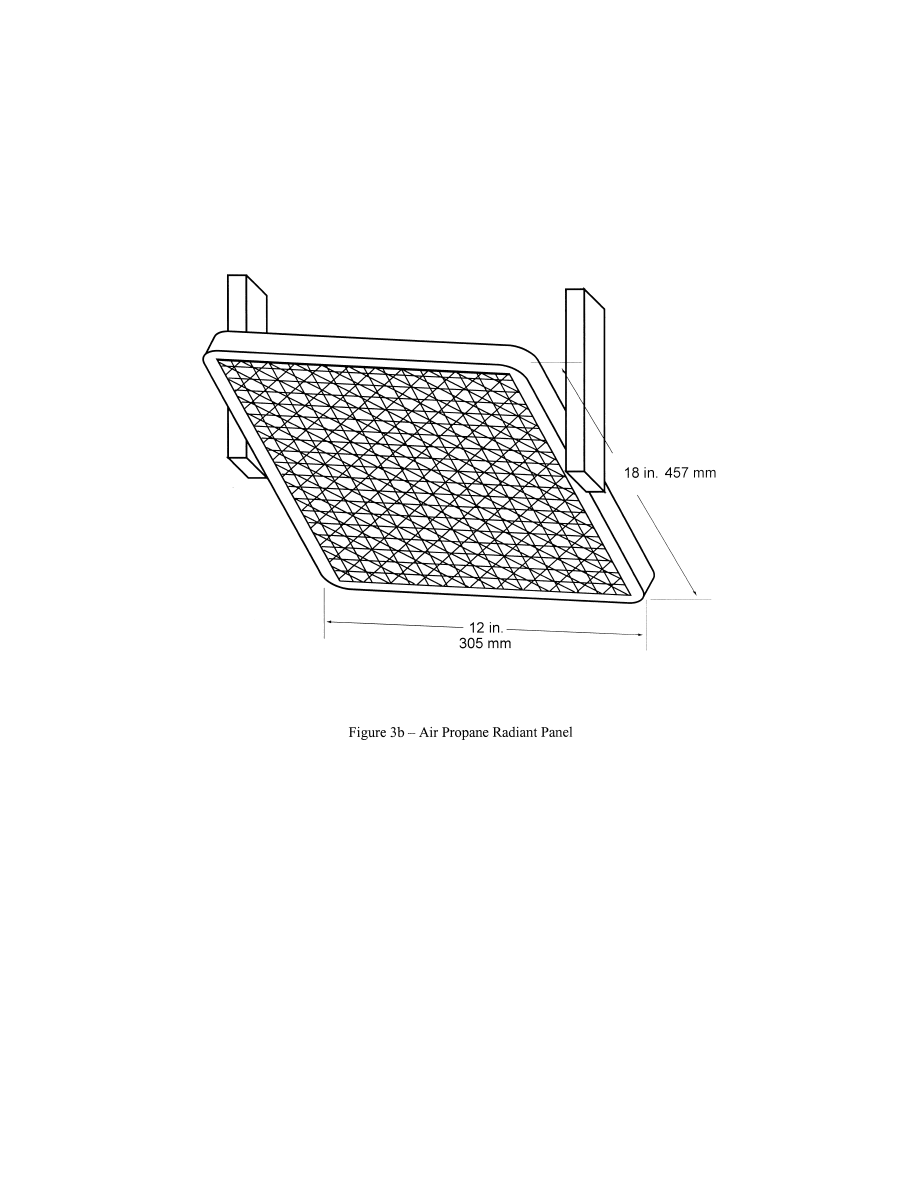
422
14 CFR Ch. I (1–1–19 Edition)
Pt. 25, App. F
(i)
Electric radiant panel.
The radiant panel
must be 3-phase and operate at 208 volts. A
single-phase, 240 volt panel is also accept-
able. Use a solid-state power controller and
microprocessor-based controller to set the
electric panel operating parameters.
(ii)
Gas radiant panel.
Use propane (liquid
petroleum gas—2.1 UN 1075) for the radiant
panel fuel. The panel fuel system must con-
sist of a venturi-type aspirator for mixing
gas and air at approximately atmospheric
pressure. Provide suitable instrumentation
for monitoring and controlling the flow of
fuel and air to the panel. Include an air flow
gauge, an air flow regulator, and a gas pres-
sure gauge.
(iii)
Radiant panel placement.
Mount the
panel in the chamber at 30
°
to the horizontal
specimen plane, and 7
1
⁄
2
inches above the zero
point of the specimen.
(3)
Specimen holding system.
(i) The sliding
platform serves as the housing for test speci-
men placement. Brackets may be attached
(via wing nuts) to the top lip of the platform
in order to accommodate various thicknesses
of test specimens. Place the test specimens
on a sheet of Kaowool M
TM
board or 1260
Standard Board (manufactured by Thermal
Ceramics and available in Europe), or equiv-
alent, either resting on the bottom lip of the
sliding platform or on the base of the brack-
ets. It may be necessary to use multiple
sheets of material based on the thickness of
the test specimen (to meet the sample height
requirement). Typically, these non-combus-
tible sheets of material are available in
1
⁄
4
inch (6 mm) thicknesses. See figure 4. A slid-
ing platform that is deeper than the 2-inch
(50.8mm) platform shown in figure 4 is also
acceptable as long as the sample height re-
quirement is met.
VerDate Sep<11>2014
12:50 Apr 30, 2019
Jkt 247046
PO 00000
Frm 00432
Fmt 8010
Sfmt 8002
Y:\SGML\247046.XXX
247046
ER31JY03.006</GPH>
spaschal on DSK3GDR082PROD with CFR